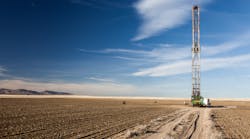Youngstown State University (YSU) in Ohio is developing a new institute designed to educate professionals and provide research for the emerging multi-billion dollar shale natural gas industry in Ohio and Pennsylvania.
The YSU Natural Gas and Water Resources Institute will provide bachelor’s-degree- level courses in science and engineering that will lead to an academic minor in gas technologies and also will provide research opportunities for industry focusing on analysis of water used in the shale gas extraction process, according to YSU.
“Given YSU’s location in the heart of the Utica shale region, this new Institute is well-poised to meet the educational and research demands and needs central to this new and growing industry,” said Martin Abraham, in a prepared statement. Abraham is dean of the YSU College of Science, Technology, Engineering and Mathematics, in which the new Institute will be located.
Formation of the Institute was announced Nov. 30 at the Youngstown Ohio Utica and Natural Gas Conference and Expo presented by the Youngstown/Warren Regional Chamber, the first conference and exhibition solely focused on
Ohio’s emerging shale gas industry, according to YSU.
The Utica shale is a large rock formation thousands of feet below the surface spanning an area from eastern Ohio to Pennsylvania and across the Canadian border. Gas contained in the Utica shale is expected to become a dominant source of natural gas for the United States in this decade. A recent study showed that more than 200,000 jobs, including nearly 9,000 in professional and technical services, will be created or supported by 2015 due to exploration, leasing, drilling and pipeline construction for the Utica shale reserve, YSU says.
One of the significant issues for the extraction of the gas is the use and recovery of large volumes of water used in the hydraulic fracturing process and the need to treat, analyze and monitor this water.
Abraham said the YSU Natural Gas and Water Resources Institute will provide research on water-related issues such as analysis and monitoring, remote sensing, remediation and treatment, and reuse and recycling. The Institute will utilize faculty and facilities in YSU’s chemistry, mechanical engineering, environmental science, chemical engineering, geology, and civil engineering departments.
In addition, the Institute’s educational component will establish an academic minor in natural gas and water resources for students interested in careers in professional and technical fields directly related to shale gas and other unconventional resources, or the petroleum industry in general. Most of the faculty, expertise, courses and laboratory components for the new minor already exist in the STEM college, Abraham said. A few new courses will be created to provide specific technical competencies required for understanding water-resource issues associated with the Utica and Marcellus formations.
The concept of the new Institute will be presented to the YSU Board of Trustees in December. Abraham said he hopes to establish an external advisory board to identify specific research targets for the new Institute and complete the development of the minor by next fall. The first students in the new minor in natural gas and water resources could graduate as early as May 2013.

